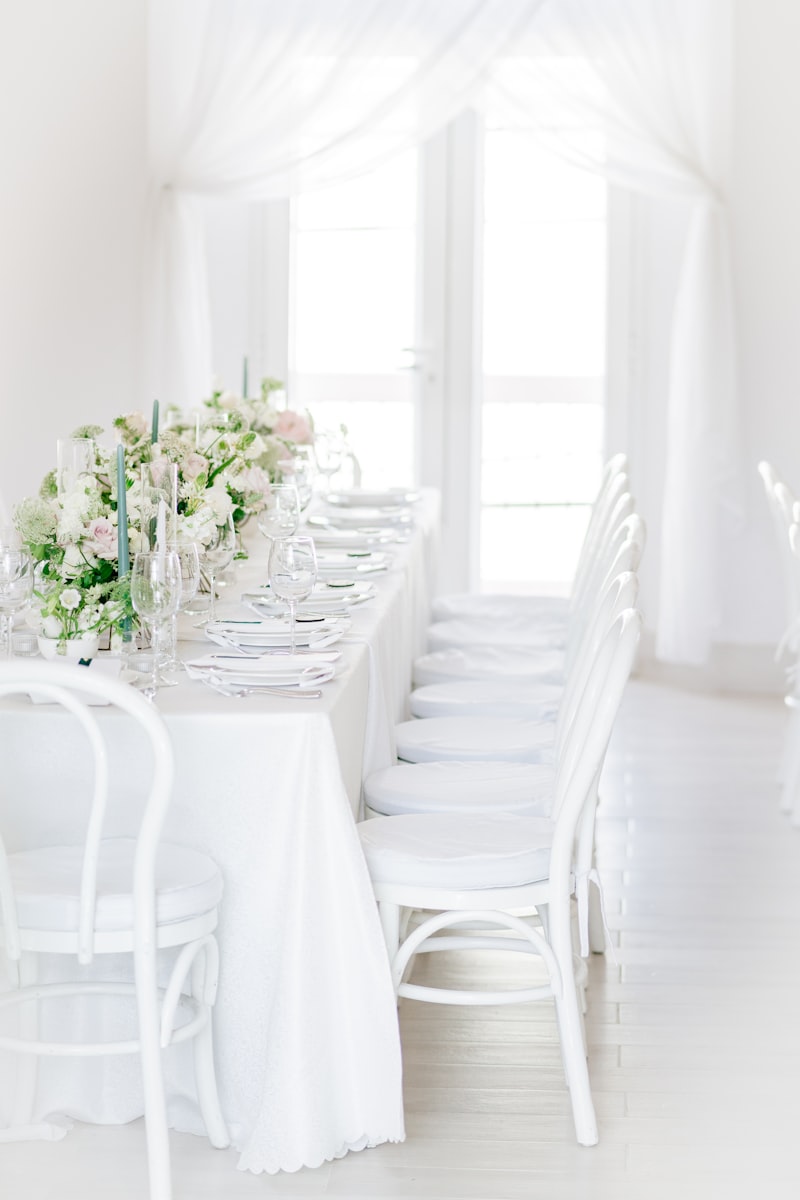When to Start Planning Your Wedding to Avoid Stress: A Comprehensive Guide
When to Start Planning Your Wedding to Avoid Stress: A Comprehensive Guide
Planning a wedding can be one of the most exciting yet overwhelming experiences of your life. With endless details to consider, it's crucial to know when to start planning your wedding to avoid stress. This article will guide you through the essential timelines, tips, and tricks to ensure that your big day is memorable for all the right reasons.
The Importance of Early Wedding Planning
Starting your wedding planning early is vital to reducing stress and ensuring that every detail is accounted for. Many couples make the mistake of waiting too long to initiate the planning process. By beginning early, you allow yourself ample time to make thoughtful decisions, budget appropriately, and engage with vendors without feeling rushed.
Key Benefits of Early Planning
- Lower Costs: Booking vendors well in advance often allows for better rates and availability.
- More Options: The earlier you start, the more choices you have in terms of venues, caterers, and more.
- Less Stress: Spacing out tasks over a longer period leads to a more manageable planning process.
- Better Organization: You can create a clear timeline and checklist for all aspects of your wedding.
When to Start Planning Your Wedding
The timeline for planning a wedding will vary based on the couple's priorities, budget, and wedding style. However, a general guideline should help steer your planning timeline:
| Planning Milestone | Recommended Timeframe |
| Engagement & Budget Discussion | 12+ Months Before |
| Venue Booking | 10-12 Months Before |
| Vendor Research | 9-11 Months Before |
| Guest List Compilation | 8-10 Months Before |
| Invitations & Save the Dates | 6-8 Months Before |
| Finalize Guest List | 3-4 Months Before |
| Seating Chart & Final Details | 1-2 Months Before |
| Wedding Rehearsal | 1 Week Before |
12+ Months Before: Setting the Foundation
Your wedding planning journey should begin with an open discussion about your vision, preferences, and budget. Decide on the size of your wedding and the kind of atmosphere you wish to create—this will influence everything from your venue to your guest list.
10-12 Months Before: Choosing the Venue
Finding a suitable venue is one of the most significant tasks on your checklist. Popular venues often book up quickly, so start exploring your options early. Consider your wedding date and the season? Will it be a winter wonderland or a summer garden affair?  Consider visiting multiple venues before making this crucial decision.
Consider visiting multiple venues before making this crucial decision.
9-11 Months Before: Researching Vendors
Researching and meeting with vendors such as caterers, photographers, florists, and entertainment is essential. Read reviews, check portfolios, and ask for recommendations from friends. The more you engage with potential vendors, the better sense you will have of who will suit your needs.
Common Questions Couples Ask
When starting the wedding planning process, many couples have similar concerns. Here are some commonly asked questions that might help you navigate your planning journey more effectively:
- How long does it typically take to plan a wedding? Most couples spend anywhere from 6 months to over a year planning their wedding, depending on the complexity and size.
- What is the average cost of a wedding? The average wedding cost in the U.S. as of 2023 is around $30,000, but this can fluctuate significantly based on location and personal preferences.
- What are some high-stress points during wedding planning? Booking the venue, managing the guest list, and coordinating vendor schedules are often cited as the most stressful elements.
8-10 Months Before: Guest List & Invitations
Compile your guest list and carefully consider the people you wish to invite. This will influence your venue choice, catering decisions, and overall budget. After finalizing your guest list, it's a good idea to send out save-the-date cards.
3-4 Months Before: Finalizing Details
At this stage, you should have your venue, vendors, and guest list confirmed. Begin crafting your seating chart and finalize any outstanding details with your vendors. If you're planning a rehearsal dinner, now is also the time to make those arrangements.
Managing Stress in the Final Weeks
As your wedding day approaches, it’s natural to feel excitement mixed with anxiety. To mitigate stress in the final weeks, consider the following tips:
- Delegate Responsibilities: Don’t hesitate to ask family and friends for help with small tasks.
- Stay Organized: Keep a detailed planner or digital checklist of tasks to ensure nothing slips through the cracks.
- Stay Balanced: Remember to take breaks for self-care, whether it be relaxation, exercise, or mindfulness practices.
Your Wedding Day: What to Expect
On your big day, have a clear schedule in place to ensure smooth transitions. Communicate your timeline with your wedding party and vendors for optimal marriage efficiency. Allow yourself breaks to soak in the joy of the moment, and remember, unexpected occurrences can happen, but they often turn into cherished memories.
Conclusion: A Stress-Free Wedding Planning Experience
In summary, knowing when to start planning your wedding can make a significant difference in your overall experience. Begin with a clear vision 12 months ahead to allow for a smooth and enjoyable planning process. By following a structured timeline, engaging with trusted vendors, and practicing self-care, your wedding day will not only be memorable but also stress-free. Remember, while it’s easy to become consumed by the details, the ultimate goal is to celebrate your love surrounded by those who matter most.
Plan wisely, stay organized, and most importantly, enjoy every moment of your wedding journey!
